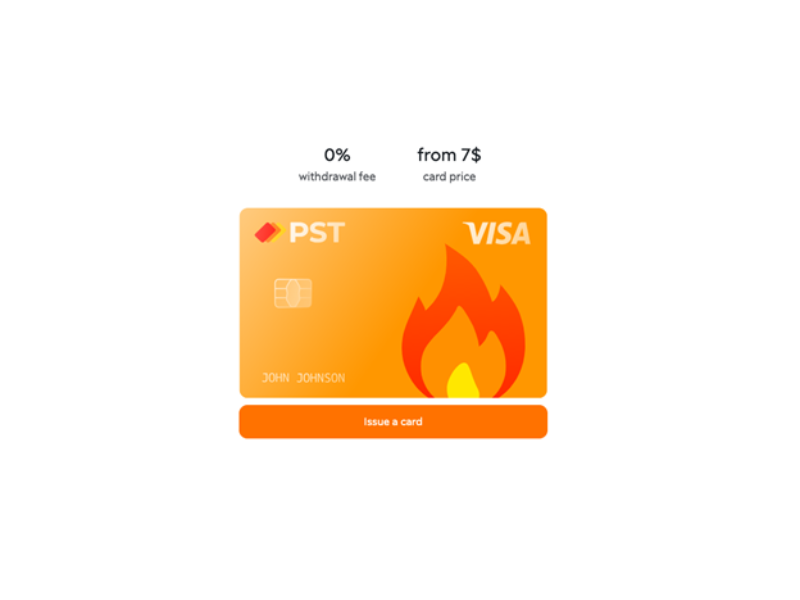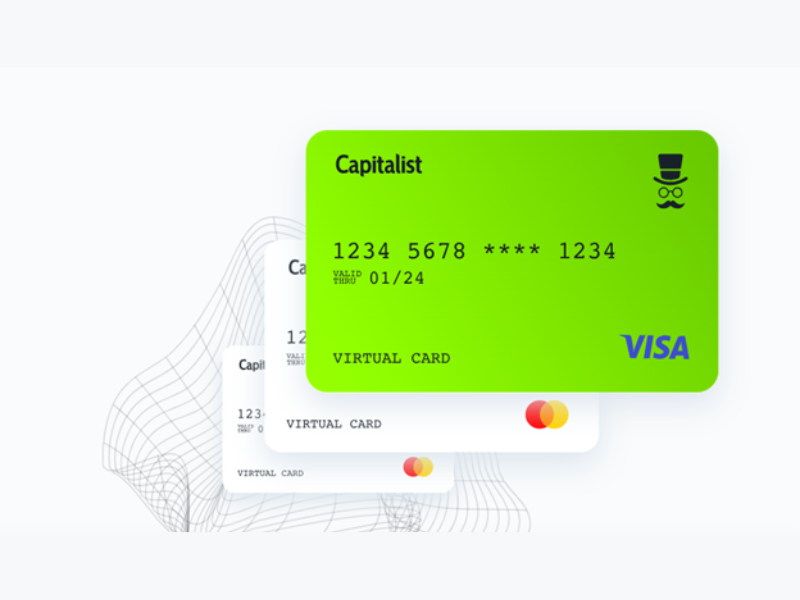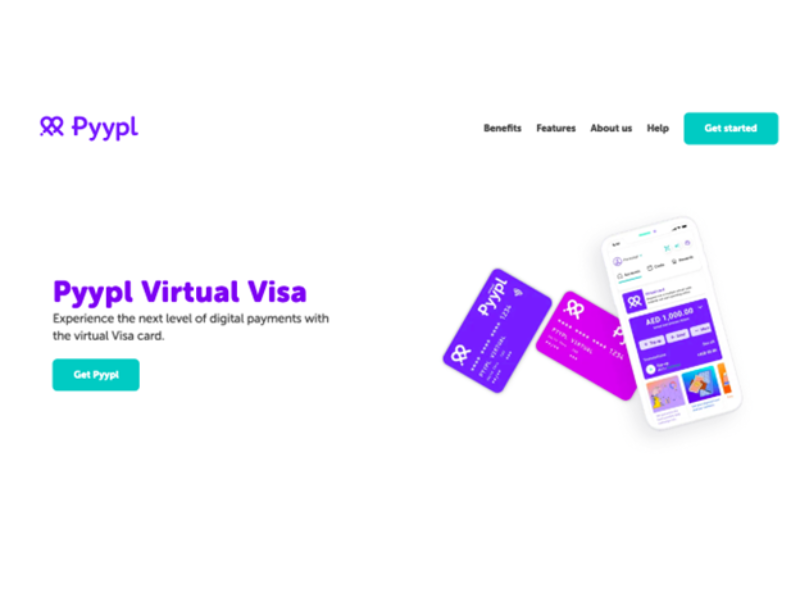Virtual cards are an ideal solution for paying for cloud services and software. These digital payment tools offer numerous advantages for everyday users looking to simplify their routine and pay for digital products conveniently.
Virtual cards are digital payment cards that exist only in a virtual format, typically provided by fintech companies. They perform the same functions as traditional plastic cards, including unique card numbers, CVVs, and expiry dates, but they are used exclusively for online transactions.
This article will review three of the best virtual card providers for purchasing cloud services and software: PSTNET, Capitalist, and Pyypl. These providers have been selected based on their security features, user interface, support services, and financial flexibility. We will explore the specifics of each provider, offering insights into why they are the top choices for users seeking convenience and efficiency in their digital transactions.
By understanding the benefits and selecting the right virtual card provider, users can significantly enhance their financial management, security, and operational efficiency.
.
1. PSTNET
PSTNET is an innovative financial platform offering a wide range of virtual payment cards such as Visa and Mastercard, catering to various purposes. These cards are ideal for online shopping in international stores, in-app purchases, subscriptions, digital services, and media buying.
PSTNET supports multiple currencies, addressing global consumer demands by enabling unlimited purchases abroad and facilitating international payment transactions. These operations are secure due to the advanced 3D Secure technology, which requires transaction confirmation via a secret code sent to the user through SMS, personal account, or Telegram bot. This extra layer of security is particularly valuable for online purchases, where fraud risk is higher compared to traditional in-person transactions.
The Ultima dollar card from PSTNET stands out as a virtual card without spending and top-up limits, making it perfect for frequent purchases and digital service payments. Users of the service leave only positive PSTNET reviews, highlighting its benefits and reliability.

Key Features
- No Transaction Fees
Enjoy fee-free transactions, withdrawals, and rejected payments.
- Easy Top-Up
Load funds using
- Popular cryptocurrencies (USDT TRC-20/BTC and 15 others)
- SEPA/SWIFT bank transfers
- Other cards (Visa/Mastercard).
.
Low Top-Up Fees
A flat fee of only 2% for top-ups, regardless of the method used.
- Zero Operational Fees
No extra charges for transactions, declined payments, or operations on frozen or blocked cards.
- Quick Registration
Register and obtain your first card in just two minutes using an active Google, Telegram, Whatsapp, or Apple account.
- Immediate Availability
The card is available and active right after registration, with verification required only if the top-up amount exceeds $500 or for mass card issuance.
- Free Cards with Sufficient Monthly Spending
Cards become free with a sufficient level of monthly expenses.
- 24/7 Customer Support
Support is available around the clock via Telegram, Whatsapp, and email.
- Functional Telegram Bot:
Notifications and 3DS codes are delivered via the Telegram bot, ensuring seamless communication.
.
2. Capitalist
Capitalist offers a versatile virtual card service that integrates with multiple payment systems and is available in various geographical regions, including the US, Europe, and many other countries worldwide. This service supports Visa cards in USD and EUR, making it ideal for international transactions. The platform ensures payment security through robust encryption and verification processes, enhancing the safety of your financial operations.

Key Features
- Card Issuance Limitations
Capitalist allows for the issuance of multiple virtual cards, with no explicit limitations on the number of cards a user can obtain. This flexibility is beneficial for businesses requiring multiple cards for different purposes.
.
- Transaction Fees:
- Card Issue Fee: $2.25 – $2.95 for USD cards, €2.65 for EUR cards.
- Monthly Maintenance Fee: $2.7 for USD cards, €2.4 for EUR cards.
- Transaction Fee: Up to $0.5 for USD cards, €0.5 for EUR cards.
- Conversion Fee: 3.5% if the transaction currency does not match the card currency.
- Balance Replenishment Methods:
- SWIFT/SEPA transfers
- Bank cards from various countries
- WebMoney
- Local payment methods in specific countries such as PIX in Brazil, PSE in Colombia, IMPS in India, and more.
.
- Registration and Card Issuance
To register and obtain a virtual card, users need to sign up on the Capitalist platform, provide necessary identification documents, and follow the card issuance process, which involves filling out an application form and making an initial deposit to activate the card.
- Customer Support
Capitalist offers 24/7 customer support, which can be accessed through multiple channels including email, live chat, and phone. This ensures that users can receive assistance at any time, addressing any issues or inquiries they may have regarding their virtual cards or other services provided by Capitalist.
.
3. Pyypl
Pyypl (pronounced “people”) is a non-bank digital app providing users with a virtual Visa card. This service is designed to be accessible globally, with regulatory compliance in various regions including the UAE, Bahrain, Mozambique, Kenya, Sierra Leone, Oman, and Kazakhstan.
Pyypl ensures the security of its transactions by adhering to the standards set by the Financial Services Regulatory Authorities in these regions.

.
Key Features
- Number of Cards Issuable
Pyypl does not specify a limit on the number of virtual cards a user can create.
- Top-Up Methods
Users can load their Pyypl account via cash, local debit card, or bank transfer
- Registration and Card Issuance
To register and issue a Pyypl virtual card, begin by downloading the Pyypl app, which is available on both iOS and Android platforms. Once the app is installed, you can proceed with the sign-up process, which involves providing some basic personal information. The next step is to verify your identity; this is done by submitting a valid ID or passport through the app’s secure interface.
- Customer Support
Pyypl offers a dedicated support section on their website and within the app, providing answers to common questions and facilitating direct contact with their support team. Users can access 24/7 support to resolve issues related to their virtual cards, ensuring smooth and reliable service.
.
Conclusion
Virtual cards have become essential tools for anyone looking to manage their finances more efficiently when paying for cloud services and software. The providers we reviewed — PSTNET, Capitalist, and Pyypl, offer diverse features that cater to a wide range of user needs.
PSTNET is notable for its ability to handle multiple currencies and its advanced security features, making it an excellent choice for international transactions. The lack of transaction fees and ease of use make it particularly appealing for frequent purchases and digital service payments.
Capitalist offers a versatile service with strong security measures and the ability to issue multiple virtual cards. This flexibility is beneficial for users who need several cards for different purposes, ensuring that all financial needs are met with ease.
Pyypl provides global accessibility and adheres to regional regulations, making it a reliable option for users across various countries. Its simple registration process and 24/7 customer support ensure a smooth and dependable experience for all users.
By choosing the right virtual card provider, users can significantly improve their financial management, enhance transaction security, and simplify their payment processes. As digital transactions continue to grow, utilizing virtual cards for cloud services and software payments will become an increasingly standard and beneficial practice.
Article received on email.



















